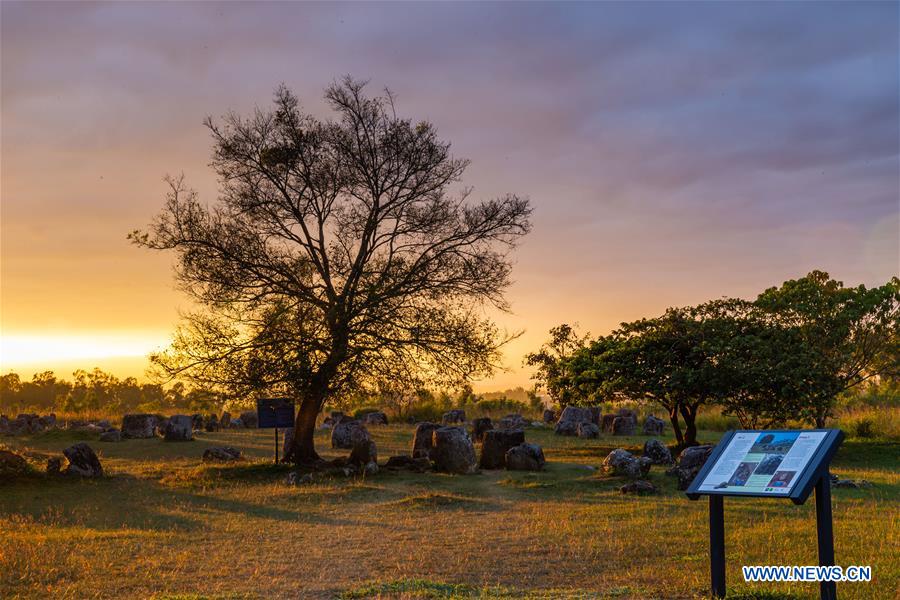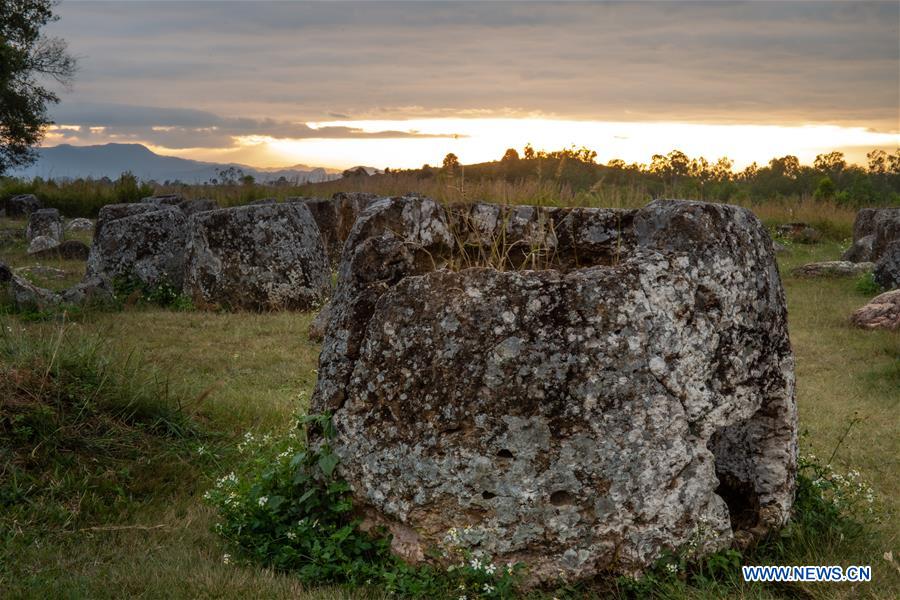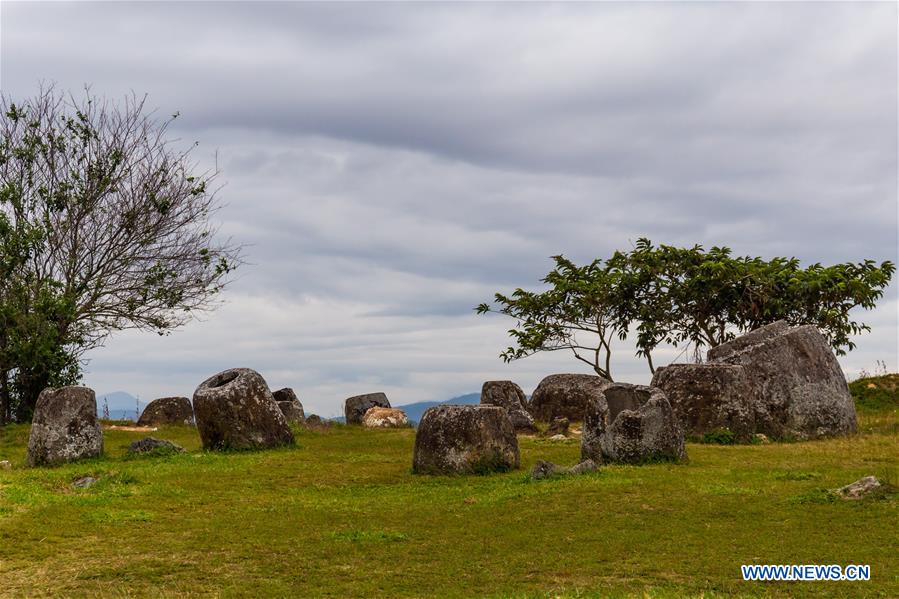
Photo taken on Nov. 3, 2020 shows the sunset view of the Plain of Jars, a megalithic archaeological landscape in Xieng Khuang province, Laos. The Plain of Jars, formally called the Megalithic Jar Sites, was officially inscribed on the World Heritage List at a meeting of the World Heritage Committee held in Baku, Azerbaijan, on July 10, 2019. The Plain of Jars is named for the more than 2,100 tubular-shaped megalithic stone jars that are believed to have been used for funerary practices in the Iron Age, according to the United Nations Educational, Scientific and Cultural Organization. (Photo by Kaikeo Saiyasane/Xinhua)

Photo taken on Nov. 3, 2020 shows the sunset view of the Plain of Jars, a megalithic archaeological landscape in Xieng Khuang province, Laos. The Plain of Jars, formally called the Megalithic Jar Sites, was officially inscribed on the World Heritage List at a meeting of the World Heritage Committee held in Baku, Azerbaijan, on July 10, 2019. The Plain of Jars is named for the more than 2,100 tubular-shaped megalithic stone jars that are believed to have been used for funerary practices in the Iron Age, according to the United Nations Educational, Scientific and Cultural Organization. (Photo by Kaikeo Saiyasane/Xinhua)

Tourists pose for photos at the Plain of Jars, a megalithic archaeological landscape in Xieng Khuang province, Laos, on Nov. 3, 2020. The Plain of Jars, formally called the Megalithic Jar Sites, was officially inscribed on the World Heritage List at a meeting of the World Heritage Committee held in Baku, Azerbaijan, on July 10, 2019. The Plain of Jars is named for the more than 2,100 tubular-shaped megalithic stone jars that are believed to have been used for funerary practices in the Iron Age, according to the United Nations Educational, Scientific and Cultural Organization. (Photo by Kaikeo Saiyasane/Xinhua)

Photo taken on Nov. 3, 2020 shows the sunset view of the Plain of Jars, a megalithic archaeological landscape in Xieng Khuang province, Laos. The Plain of Jars, formally called the Megalithic Jar Sites, was officially inscribed on the World Heritage List at a meeting of the World Heritage Committee held in Baku, Azerbaijan, on July 10, 2019. The Plain of Jars is named for the more than 2,100 tubular-shaped megalithic stone jars that are believed to have been used for funerary practices in the Iron Age, according to the United Nations Educational, Scientific and Cultural Organization. (Photo by Kaikeo Saiyasane/Xinhua)

Photo taken on Nov. 3, 2020 shows the sunset view of the Plain of Jars, a megalithic archaeological landscape in Xieng Khuang province, Laos. The Plain of Jars, formally called the Megalithic Jar Sites, was officially inscribed on the World Heritage List at a meeting of the World Heritage Committee held in Baku, Azerbaijan, on July 10, 2019. The Plain of Jars is named for the more than 2,100 tubular-shaped megalithic stone jars that are believed to have been used for funerary practices in the Iron Age, according to the United Nations Educational, Scientific and Cultural Organization. (Photo by Kaikeo Saiyasane/Xinhua)

Photo taken on Nov. 3, 2020 shows a view of the Plain of Jars, a megalithic archaeological landscape in Xieng Khuang province, Laos. The Plain of Jars, formally called the Megalithic Jar Sites, was officially inscribed on the World Heritage List at a meeting of the World Heritage Committee held in Baku, Azerbaijan, on July 10, 2019. The Plain of Jars is named for the more than 2,100 tubular-shaped megalithic stone jars that are believed to have been used for funerary practices in the Iron Age, according to the United Nations Educational, Scientific and Cultural Organization. (Photo by Kaikeo Saiyasane/Xinhua)